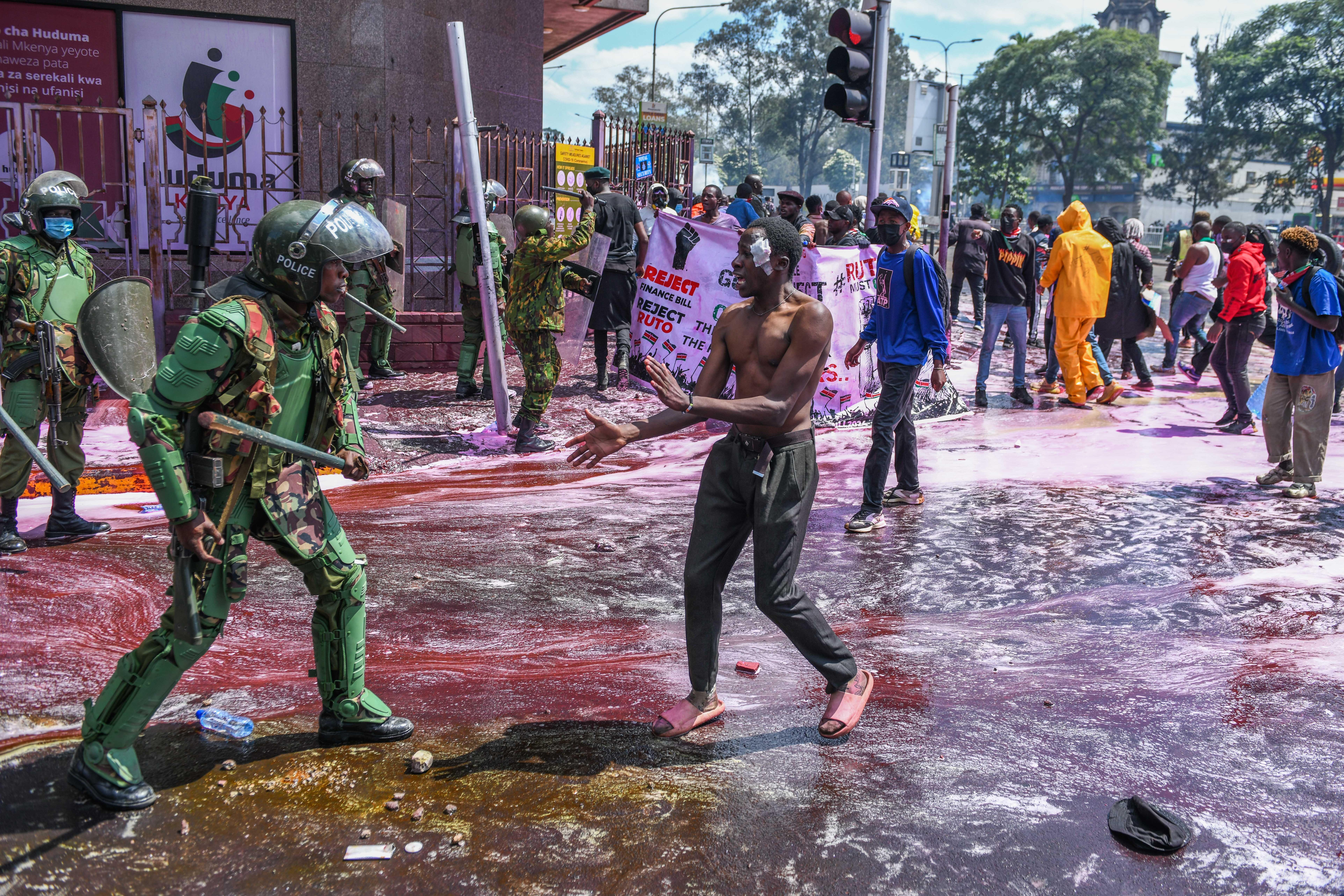Finance Bill
Black Tuesday in Kenya as Gen Z overrun parliament, and police kill 14

Kenianische Polizisten gehen in Nairobi gegen Demonstranten vor, die gegen die Steuererhöhungen im geplanten "Finanzgesetz 2024" protestieren
© picture alliance / Anadolu | Gerald AndersonFourteen people were killed and Parliament torched as stalwarts of President William Ruto passed controversial tax law which has provoked a popular uprising among young Kenyans. Tuesday June 25, 2024 was no ordinary day in Kenya. Gen Z protestors were staging the fifth of their “seven days of rage” hold-out against Ruto government’s hard-line stance on Finance Bill 2024. In 35 of Kenya’s 47 counties, they poured out in the streets in their thousands, shouting down the government, burning and looting properties associated with ruling party MPs. While Nairobi was the epicentre of the demonstrations, with protesters overrunning Parliament and desecrating symbols of power, it was the President’s home city of Eldoret which shocked many. Hundreds of protesting youths descended on a property belonging to Ruto’s henchman, a flamboyant local MP, ransacked it and carted away expensive liquor. Another of the President’s parliamentary allies, chair of the finance committee which endorsed the tax proposals, had his rural home attacked, and property burnt.
Protesters overrun city centre and parliament amid violence
In the day-long protests in Nairobi, protesters took charge of the city’s central business district with businesses shutting down for the day. Police tear gassed the crowds, sprayed and shot at them. Majority of the fatalities occurred outside parliamentary premises when the protesters overpowered police, and ran inside the hallowed chambers. MPs who had just concluded the vote- 195 to 109 for the bill- were hushed through a secret tunnel to the basement of their new building where they were kept until police re-took the facility. Shaken MPs were sneaked out in ambulances while others jumped over the fence to join the demonstrators. A number were injured in the ensuing melee and the mace, symbol of authority for Kenya’s parliament, was looted and broken into two. By the time police restored order in parliament, everything had been turned upside down, windows broken, flags looted, chairs strewn all over and fire lit up. Outside, angry police stormed the Red Cross Camp located at a nearby church where injured protesters were receiving treatment. Protestors also lit up fire at another symbol of power near the church, the Office of Nairobi Governor.
Calls for peace amid turmoil: President decries "treasonous" acts as protests continue
In the early evening, the Catholic Church leadership addressed the nation, calling for peace and return of normalcy. Later at night, an unremorseful President addressed the nation, describing the events of the day as “treasonous” and vowing to go for the ring leaders.The internet, a crucial mobilising agent for the protests, suddenly slowed down, with the country’s dominant telco - Safaricom - suspiciously claiming loss of “some undersea fibre capacity.” The protests which began last week have been hailed as a new dawn for the country as a bold, tribe-less new generation of young protesters asserted themselves in the political space. Meanwhile, the international community including the United Nations, embassies, human rights agencies and religious groups and Kenyan civil society including the Kenya Media Sector Working Group have called for restraint, calm and return of normalcy. The controversial Bill which triggered the violence now lies on the desk of the President who must either sign it into law or return it back to Parliament for reconsideration.
Nzau Musau and Judie Kaberia are the Kenya project managers for the Friedrich Naumann Foundation for Freedom

